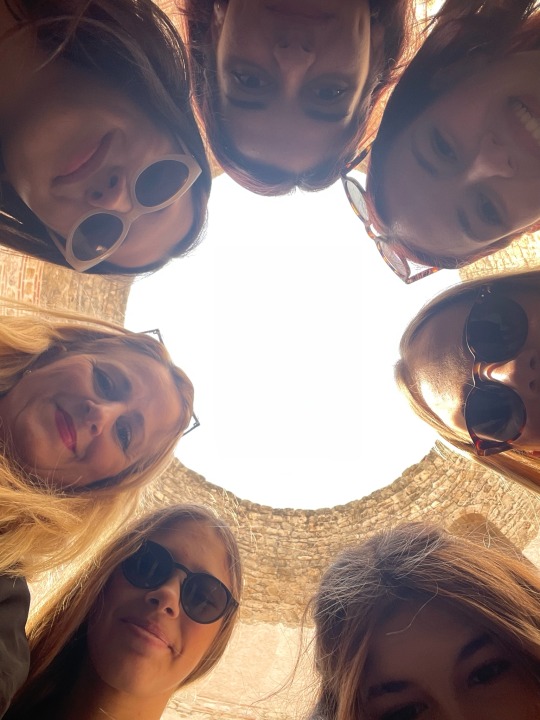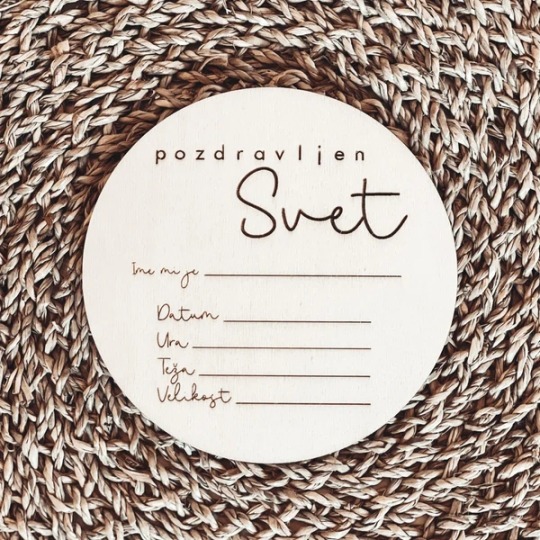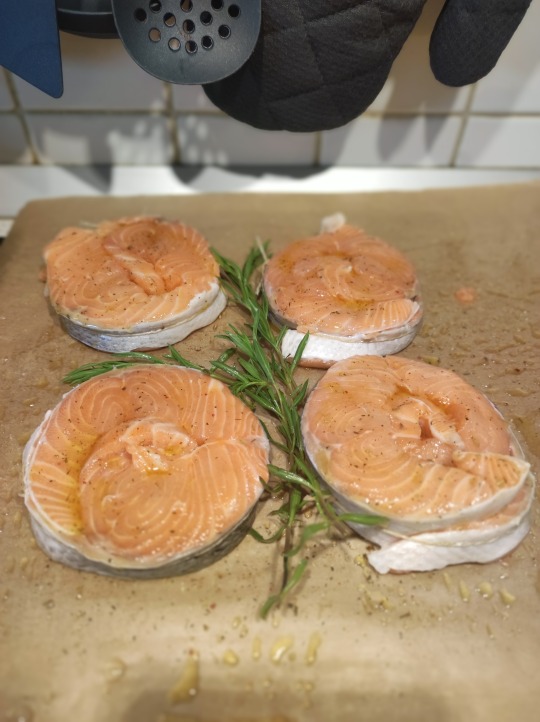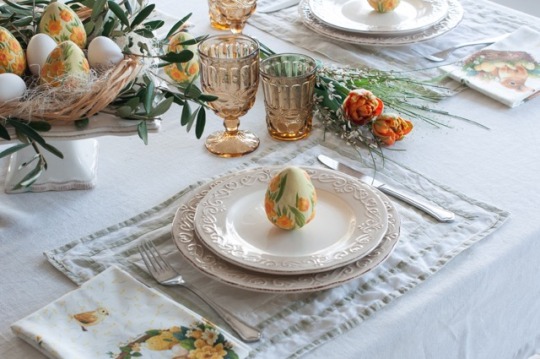#družina
Explore tagged Tumblr posts
Text
Moudra, která vyšla z úst prvňáků/druháků aneb zážitky z praxí ve družině #2
"Já jsem po něm vždycky toužila." Mluvila o Green Goblinovi.
"Vypadáš jako Harley Queen." Měla jsem jedno oko namalované růžově a druhé zeleně.
Při tiché poště nám z bonbónu vznikl korbel a z berušky haluška.
"Já si myslím, že vážíš třicet." Kéž by.
"On má fejkový prachy!"
"Ten mravenečník vypadá jako mravenec."
"Neee, chudák Jidášek."
"Co? Ty máš babičku prezidentku?"
22 notes
·
View notes
Text
Bohatier series in nutshell.
i don't "date" and i don't "chill" and i don't "hang out." i make pacts. i swear oaths. i forge unbreakable bonds. this makes me a cool breezy person to take on road trips et cetera
82K notes
·
View notes
Text
Kupi sliko Božič Božiček božično drevo
Božič je čas radosti, topline in magije, in zdaj je pravi trenutek, da obogatite svoje projekte s čudovitimi slikami, ki bodo vnesle praznično vzdušje. Naša kolekcija ponuja široko izbiro fotografij, ki so idealne za božične voščilnice, objave na družbenih omrežjih in promocijske akcije, kar pomeni, da boste zagotovo našli pravo sliko za vaše potrebe.
V naši ponudbi boste našli slike, ki zajemajo duh Božiča — od tradicionalnih prizorov z božičnimi drevesi in okraski do prijetnih zimskih pokrajin. Vsaka slika je skrbno izbrana, da doda toplino in čar vašim projektom ter jih naredi nepozabne.
Naša platforma je enostavna za uporabo, kar vam omogoča hitro in enostavno iskanje slike, ki vam je všeč. Preverite lahko po temah, stilih ali barvah, kar vam olajša iskanje popolnih božičnih motivov. Naša zbirka slik je raznolika in prilagodljiva različnim potrebam.
Vse slike so na voljo v visoki ločljivosti in različnih formatih. Ne glede na to, ali potrebujete sliko za tisk, spletne oglase ali digitalne voščilnice, si lahko zagotovite, da bo kakovost odlična in vaše sporočilo privlačno ter učinkovito.
Naša kolekcija vsebuje tudi številne zabavne in duhovite slike, ki bodo prinesle nasmeh na obraz. Bodisi so to smešni trenutki s sv. Miklavžem ali prikupne družinske scene, naši motivi bodo dodali kanček zabave vašim prazničnim voščilom.
Upoštevamo vašo potrebo po kakovostnem vsebina po dostopnih cenah. Zato ponujamo konkurenčne cene in fleksibilne pakete nakupov. Ne glede na to, ali potrebujete eno sliko ali celotno zbirko, boste vedno našli nekaj, kar se prilega vašemu proračunu.
Naj vaši praznični projekti zasijejo s pomočjo naših slik. Te slike niso le vizualni elementi, temveč so način, kako izraziti veselje, ljubezen in srečo v tem posebnem času. Delite čar Božiča s svojimi strankami, prijatelji in družino.
Če imate kakršna koli vprašanja ali potrebujete pomoč pri izbiri slik, je naš tim za podporo uporabnikom tukaj, da vam pomaga. Vložili smo veliko truda, da zagotovimo, da bo vaša nakupna izkušnja preprosta in prijetna.
Naša misija je, da vam pomagamo ustvariti nepozabne spomine. Z našimi slikami lahko enostavno uresničite vzdušje, ki ga želite, in poskrbite, da bo vsak trenutek praznikov poseben in nepozaben.
Ne zamudite priložnosti, da obogatite svoje projekte z neverjetnimi božičnimi slikami. Raziskujte našo zbirko še danes in poiščite popolne vizualne elemente, ki bodo dodali kanček prazničnega duha vašim delom.
Vsaka slika v naši zbirki je priložnost, da pokažete svojo kreativnost in edinstvenost. Uživajte v ustvarjanju in delite svoje vizije s svetom.
V času, ko delimo srečo, naj bodo naše slike del vaših spominov. Dodajte malo božične magije svojim projektom in uživajte v vsem, kar Božič prinaša.
Hvala, da ste izbrali našo platformo. Veselimo se, da vas bomo navdihovali in vam pomagali prenesti čar Božiča skozi naše slike.
#božič#novo leto#praznik#božiček#božično drevo#zima#sneg#darila#družina#ljudje#otroci#ozadja za oglaševanje#tekstura za urejevalnik#slika za marketing#slika za internetni marketing#predloga za urejevalnik#ozadje za namizje#oglasi#ozadja#ozadje za oglaševanje#ozadje za internetno trženje#ozadje#ohranjevalnik zaslona#umetnost#dizajn#ilustracija#koncept#kreativa#kolaž#tekstura
0 notes
Text
beseda dne: fijakati (se) (pogovorno: voziti (se), pogosto brezciljno ali ovinkaje)
Definicijo podajam po tem, kar razberem iz lastne rabe in Gigafide, v slovarju Črnovrški dialekt pa Tominec definira fijakati kot postopati. Se priporočam, da mi poveste, kako besedo uporabljate vi!
etimologija: fijakar, torej izvošček oziroma nekdo, ki ljudi poklicno prevaža s kočijo, je prek nemščine (Fiaker) izposojeno iz francoskega fiacre, oboje v istem pomenu.
Beseda je v francoščino prišla iz imena svetega Fiakrija, ki je bil v 17. stoletju naslikan na fasadi gostilne (Hôtel de Saint Fiacre v Parizu), katere lastnik se je bojda ukvarjal tudi z izvoščkovskim poslom. Izvoščki so se torej zbirali pred steno s sliko sv. Fiakrija in se po njem začeli imenovati, sv. Fiakrij pa je retrogradno postal (neuradni?) zavetnik taksistov.

(sv. Fiakrij)
To je vsaj različica zgodbe, ki se mi zdi najbolj prepričljiva — verzij je več, razlikujejo se pa v podrobnostih: na kateri ulici je gostilna stala, na Rue Saint-Martin ali Rue de Fiacre, ki naj bi bila poimenovana po cerkvi, posvečeni sv. Fiakriju? (Slednje bi bilo sicer zelo smiselno, ampak tako trdi samo Družina, ki vira ne navaja, cerkve pa tudi ne najdem nikjer drugje, na nobenem zemljevidu ne nič :( ). In kdaj točno se je to zgodilo, kako je bilo s tem lastnikom/vodjem izvoščkarjev? So imele kočije res v notranjosti najprej podobico sv. Fiakrija?
Vprašanja, na katera žal zaenkrat ne znam odgovoriti. Upam, da vam nejasnost ne zagreni besede same, ki je pa prav fina in mi je zelo všeč.
Viri:
Campbell, Gordon, 2013. "The Hermit in the Garden: From Imperial Rome to Ornamental Gnome." https://books.google.si/books?id=ZlZRlVA8eHkC&pg=PT168&redir_esc=y#v=onepage&q=rue%20saint-martin&f=false (<- ne piše, na kateri strani je to, ampak tukaj je delček s fijakarji)
Črnovrški dialekt, s. v. "fijakati", avtor Ivan Tominec, obiskano 18. 5. 2025, https://www.fran.si/Search/File2?dictionaryId=194&Name=crnovrski%2089.pdf
"Fiacre", Britannica, https://www.britannica.com/topic/fiacre#ref234090 (obiskano 18. 5. 2025)
"fijakati" na CJVT-jevi Gigafidi 2.0, obiskano 18. 5. 2025, https://viri.cjvt.si/gigafida/Concordance/Search?Query=fijakati
"Hôtel de Saint Fiacre," Wikipedia, The Free Encyclopedia, https://en.wikipedia.org/w/index.php?title=H%C3%B4tel_de_Saint_Fiacre&oldid=1142251425 (obiskano 18. 5. 2025).
"Rue Saint-Fiacre (Paris)," Wikipédia, l'encyclopédie libre,https://fr.wikipedia.org/w/index.php?title=Rue_Saint-Fiacre_(Paris)&oldid=219338118 (obiskano 18. 5. 2025).
"Saint Fiacre," Wikipedia, The Free Encyclopedia, https://en.wikipedia.org/w/index.php?title=Saint_Fiacre&oldid=1289262715 (obiskano 18. 5. 2025)
Slovenski etimološki slovar, s. v. "fijȃkar", avtor Marko Snoj, obiskano 18. 5. 2025, https://www.fran.si/193/marko-snoj-slovenski-etimoloski-slovar/4286222/fijkar
"Slovesnost ob prazniku fijakarjev", Družina.si, https://www.druzina.si/clanek/slovesnost-ob-prazniku-fijakarjev-2 (obiskano 18. 5. 2025)
Wiktionary, s. v. "fiacre", obiskano 18. 5. 2025, https://en.wiktionary.org/wiki/fiacre
Wiktionary, s. v. "Fiaker", obiskano 18. 5. 2025, https://en.wiktionary.org/wiki/Fiaker
Slika:
Vassil, 2012. "Sveti Fiakrij v Notre-Dame de Bar-le-Duc". [Fotografija vitraja]. CC0 1.0. https://upload.wikimedia.org/wikipedia/commons/b/b7/Eglise_Notre-Dame_Bar-le-Duc_Vitrail_Saint_Fiacre_30_04_2012.jpg
#ime povzemam samo po družini¸ ker drugače slovenske verzije ne najdem zares#v Snoju piše kar sv. Fiacre#Fiakrij mi je bilo bolj všeč ...
10 notes
·
View notes
Text
kosmo je seriál české televize, který si klade jednu otázku: jak by to vypadalo, kdyby češi uskutečnili vlastní výpravu do vesmíru? a pak ji v pěti asi 40minutových dílech zodpoví (a jak :D). jak by vypadalo takové výcvikové centrum? (školní družina.) kdo by to platil? (jistý anton hrabiš.) jaké přední kosmonauty bychom do vesmíru vyslali? a bylo by to něco, na co by česko konečně mohlo být hrdé?
všechno je bráno s tradičním českým absurdistickým, suchým humorem, a je to skutečně křupavou satirou české vlády a společnosti.
A JE TO CELÉ DOSTUPNÉ ZDARMA BEZ ČEHOKOLIV NA IVYSÍLÁNÍ!!!
13 notes
·
View notes
Text
0 notes
Text


GeoNight 2025.
I vesela geografska družina I. gimnazije iz Splita.
0 notes
Text


*GRALska Družina, kod koje je na čuvanju Zavetni Kovčeg (sa sve biblijskim sadržajem u njemu), duhovno povezuju egipatsku boginju Izisu (Izida, grč.) = Serabizisa, sestra i žena Serabisa/Apisa=sARABisa, sa Marijom Magdalenom (jedna duša, dva imena) koja je bila miljenica Isusova! Po appkrifnim (zabranjenim) spisima provlači se još jedno ime: Jovanka Orleanka!
1 note
·
View note
Text
Moudra, která vyšla z úst prvňáků/druháků aneb zážitky z praxí ve družině #1
"Andrej Babiš jde do akce."
"Andrej Babiš je v akci."
"Já jsem Charmander."
"Ty seš drsná." "Jak jsi na to přišla?" "Protože máš propíchnutý nos."
"Tomáši, můžu se na to jenom koukat?" Mluvil o čokoládových pastelkách.
"Vypadáš jako Wednesday." Usoudil tak pouze podle bot.
23 notes
·
View notes
Text
Katera tablica za novorojenčka je najboljša za vašega otroka?
Ob rojstvu otroka se vsaka družina sooča z vrsto odločitev, med katerimi je tudi izbira personalizirane tablice za novorojenčka. Tablica za novorojenčka ni le estetski dodatek, temveč tudi trajen spomin na dan, ko je v vašo družino prišel nov član. Pri podjetju Meraki, Zan Kokol s.p., se osredotočamo na ustvarjanje unikatnih in kakovostnih tablic, ki bodo odlično dopolnile vašo zgodbo.

Zakaj izbrati tablico za novorojenčka?
Tablice za novorojenčke imajo več funkcij. Poleg tega, da predstavljajo edinstven spominek, so lahko krasen dodatek otroški sobi ali pa jih uporabite za fotografiranje otroka ob posebnih priložnostih. Personalizirane tablice vključujejo otrokovo ime, datum rojstva, težo in dolžino ob rojstvu, kar ustvari neprecenljiv spomin, ki bo trajal večno.
Na kaj paziti pri izbiri tablice?
Pri izbiri tablice za novorojenčka je pomembno upoštevati nekaj ključnih dejavnikov:
Material: Pri Meraki uporabljamo visokokakovostne materiale, ki so varni za otroka. Naše tablice so običajno izdelane iz lesa ali akrila, kar zagotavlja trajnost in varnost.
Oblikovanje: Personalizacija je ključna. Tablice za novorojenčke, ki jih ponujamo, so na voljo v različnih stilih, barvah in motivih, da se popolnoma ujemajo z vašimi željami in otroško sobico.
Velikost in oblika: Tablice so lahko različnih velikosti, zato lahko izberete takšno, ki ustreza vašemu prostoru ali namenu. Pomembno je, da je tablica dovolj vidna, a ne prevelika, da bi zasenčila druge dekorativne elemente.
Personalizacija: Meraki ponuja širok spekter možnosti za prilagoditev tablice, od izreza imena do dodajanja posebnih podrobnosti, ki so pomembne za vašo družino.
Zaključek

Izbira prave tablice za novorojenčka je odličen način, kako obeležiti prihod vašega otroka na svet. Pri Meraki, Zan Kokol s.p. smo tu, da vam pomagamo ustvariti popolno tablico, ki bo odražala vašo ljubezen in vesel dogodek. Ne glede na to, ali iščete nekaj minimalističnega ali bolj dodelanega, pri nas najdete vse.
Za več informacij obiščite našo spletno stran www.merakiengraving.com ali nas pokličite na +386 041 500 158.
0 notes
Text
beseda dne: drug
etimologija: v slovanščini stari vrstilni števnik za 2. zamenjan z besedo za tovariša (drug je tudi v slovenščini še vedno beseda za tovariša, samo mogoče malo zastarela. Ampak npr. v hrvaščini je pa še živa & zdrava! In isti koren je tudi v družiti (se), družina, društvo ...)
#števniki so drugače etimološko fascinantni!!!!#(<- rečeno z glasom nekoga¸ ki se je nekaj malega naučil in se pripravlja¸ da bo postal najbolj neznosen človek na svetu)#(nekaj zelo malega)
7 notes
·
View notes
Text
(C) EU This interview is facilitated by EUPL and funded by the European Union.
I am posting snippets of my correspondence with Anja Mugerli as it would give readers an insight into how she intermingles folkloric elements in to contemporary fiction.
Dear Anja,
Thank you for sharing the two PDFs of your stories in English translation. I have been pondering over the stories for a while now. Your stories operate at so many levels. They require the stories to be read over and over again and there is always something new to discover. I am not sure if you intended it, but at one level it is a straightforward short story. At another level, particularly if read again, it has a “folklory” air to it. I am not sure how to spell it out any clearer. Then, your fascination with the body without being voyeuristic or sleazy but in a calm, matter-of-fact tone, is lovely. It is almost as if a confident female gaze is over the body. and owns it. It is a very empowering feeling while reading your fiction. Thank you.
Dear Jaya,
Thank you for your very interesting questions. I’ll be happy to answer.
Anja
****
Anja Mugerli, born in 1984, is a Slovene writer. Her debut, the short prose collection Zeleni fotelj (Green Armchair), was published in 2015 and in 2017, her first novel, entitled Spovin, was nominated for the Novel of the Year Award in Slovenia. In 2021, her short prose collection Čebelja družina (Bee Family) won European Union prize for literature. She graduated with a degree in slovenian studies and has a master’s in performance studies and creative writing. She lives and works in Nova Gorica, on the border of Slovenia and Italy. In 2023, was published her second novel, entitled Pričakovanja (Expectations), by Cankarjeva založba.
Q1 How and why did you start writing fiction?
I grew up surrounded by books. I was a very shy and quiet child and sometimes it was hard for me to make friends. I guess what was missing in my real life I found it in books and when I grew up, I realized that I can express myself in writing. After I finished my studies, I decided I want to start writing seriously and I started sending my short stories to Slovenian literary magazines. More I wrote better my writing became and in 2014 I send my best stories to some editors because I wanted to publish a book. A year later my first book, a collection of short stories Zeleni fotelj (Green Armchair), was published. The book was very well received in Slovenia and since then I wrote three more books, two novels and another collection of short stories Bee Family, that received the European Union Prize for Literature. It was translated in Croatian, Macedonian, Hungarian, Italian and Bulgarian. Other translations will follow.
Q2. You are a polyglot. English, Spanish, Italian, and Slovene are the languages spoken by you. How does this familiarity with languages and thus, with different cultures impact your writing?
Slovene is of course my mother tongue. From other languages the closest to me is Italian because I live in a city on the border with Italy and I was in contact with this language form early childhood. English and Spanish I learned in school. Understanding different languages means that I can also read books in English, Italian and Spanish. Reading a book in original language is a different experience than reading it in translation. I often read the same book first in original language and then in Slovenian translation. An advantage of understanding different languages is also that I can read a book before it’s even translated in Slovenian. All this affects my writing. When I write a book about specific theme, I read other books that deal with this topic. In this way I compare different views and I try to look at the theme from other angles. This definitely broadens my horizon. Sometimes I use different books as references. In my novel Pričakovanja (Expectations) for example, I related to the female authors like Rachel Cusk and Sheila Heti who in their novels write about motherhood and womanhood.
Q3. What is it about cultural mappings that interests you?
In my book Bee Family, I explored different old customs and rituals specific from old Slovenian culture. Because I wanted a specific, darker atmosphere in the book, I chose the customs and rituals that deal with a little more obscure topics, for example burials. I knew about some customs, about others I found out during my research. There are a lot of old customs that are not used any more but they are still part of our culture’s heritage. I think it’s important to remember them and their role in past culture, and since many people don’t read ethnological articles, I think it’s a good thing to write about it in fiction. I like literature from which I learn something new, in which it’s not only about the story.
Q4. Would you self-translate your books, say from Slovene into English or even Italian? If yes, then what are the safeguards you would put in place, so as not to tinker with the text too much? Or would you merely translate the Slovene text as it has been written into another language?
In the past I actually translated a few of my texts from Slovenian to Italian. They were dramatic texts for a competition held in Duino in Italy. Two times I received the second prize, so I guess the translations were not bad. Today I wouldn’t do it anymore. I love writing in Slovenian. I can think, explain, interpret best in my own language.
Q5. You seem to be fascinated by the body. Why?
I think in western culture everyone is fascinated by the body – with this I mean of course female body. Since we are little girls, we hear and see everywhere how should a female body look like and also how it shouldn’t. This applies to films, tv-series, commercials and nowadays social networks, but it doesn’t stop there. Girls and women are confronted with comments on their bodies also in their social circles, from their classmates, coworkers and family members. The people who think they are allowed to comment on your body are often men (but not always!) and therefore also this myth of “perfect” body was made by men. I’m interested in women’s experience of their own bodies. How does it feel to be constantly aware of your own body? Because I think that women are constantly aware of their own body: how does it look, does it fit the society “standards”, what you think is wrong with it? Can your body get pregnant and can you have children? This is another thing that is very important in our society. Are you still a woman if you can’t have children? Or if you don’t want to have children? In my writing I try to turn the focus from “how should” to “how does it feel”.
In my novel Pričakovanja (Expectations) I write about a couple who can’t have children. The protagonist Jana is confronted with her own expectations and longings and with expectations of society. She is married, she finally has a steady job, she and her husband just bought a new apartment, the next step is a child. It seems that everyone around Jana expects that she will get pregnant. If she can’t get pregnant naturally, the medicine will help, it’s as easy as that. But during procedures of artificial insemination Jana feels more and more alienated from her body. She is reduced to her uterus, ovaries and cells and she gradually starts to lose contact with herself. The fact that the procedures of artificial insemination don’t succeed doesn’t help. Jana begins to think about motherhood. What does it mean to be a mother, is this really the only way she can live a full life, is it such a tragedy if she will never have children, what are the advantages of not having a child? She also realizes that it’s sometimes very difficult to separate your own expectations from expectations of others.
Q6. What is it about folk tales that intrigues and you wish to experiment with in your literary fiction? What are the technicalities that charm you, apart from folklore being a fine example of storytelling that has withstood the test of time. Can these be used and adapted with sophistication in modern stories?
In my book Bee Family, I explored old customs and rituals that are specific to Slovenian culture but can also be related to Slavic folklore. I never wanted to write about the past, instead I wanted to place these customs and rituals in today’s time (only one story happens in the past, during Second World War). I personally see old customs as a link to our ancestors and their way of life. I like the magic and secrecy of it, but I’m aware that nowadays society is very different, the values changed. Because of this, in my stories I tried to rethink old customs and rituals in a way that their main role changed. For example, in the first story of the book, the dance with the chair takes another role in the protagonist’s life in comparison to the old woman’s. If the dance with the chair in old woman’s life was important because during it, she found her future husband, the protagonist uses this old custom differently. In this way she breaks the tradition but on the other hand it’s because of this custom that she takes her life in her own hands. These customs and rituals often help my protagonists but not always in the way the reader may expect. My translator into Croatian said to me that these unexpected turns were exactly what fascinated her about the book. I see tradition as an important part of our culture, but I also think that we should rethink some old customs, see if they still make sense in the life we live today. Some cultures for example still blindly follow some customs that are hurting people and animals and nature.
Q7. How would you define femininity? Why is it that I get a sense from the few stories of yours that I have read, it is a concept that you wish to tussle with?
I think about this question a lot and I also try to integrate it into my writing, so I guess your sense is correct. What does it mean to be a woman? I often think about my mother who passed away four years ago. She was the first female role model to me. She was a very kind woman who always put her family first. She would do anything for us, her children. Some would say that this is a very natural thing, maternal instinct, but I personally know many women who don’t feel this way about their children or who even won’t have a child because of it. Are they less women because of it? I don’t think so. In her caring for others my mother completely forgot about herself. I see femininity as an ambiguity, always keeping balance between your own needs and wishes and expectations of family, friends, society. Some women, especially older generations, couldn’t handle this balance and they lived like my mother, they never put themselves first. It still happens today. I know many young mothers who deal with sense of guilt whenever they choose to put themselves before their child. I don’t have children, but I think you can’t expect to raise a child, who is sure of himself and who loves himself, if you as a mother don’t feel this way about yourself. It’s always about projection.
Q8. Your authorial comments in the stories are astute and you etch characters brilliantly. They are memorable. How do you observe people in real life?
As I mentioned before, I was that child that didn’t join the play or quarrels with other children. Instead, I’ve rather observed the behaviour of others, not only my peer but also adults. I’m an introvert and as you may know introverted people prefer solitude and conversations one-on-one than big gatherings. But because our society (with “our” I mean Western) is more extrovert oriented, introverts are sometimes forced to act in extroverted way, for example if they want to get a job. Some years ago, I read a beautiful book about introverts, Quiet by Susan Cain, and the author during her research found out that introverts often imitate the behaviours of extroverted people. They do this so they can survive in hyperactive western society. I found myself in this description and more I think about it more I’m sure I did/do the same think. I observe people, but I don’t stop with their behaviour, I also focus on their moods, fillings, reactions etc. I use all of this in my writing and in creating of my protagonists.
Q9. Women writing about families tend to get mired in a lot of domestic detailing, which in its own way needs to be articulated and made visible. Yet, in your fiction, you take it one step further and probe the grey spaces between relationships and explore the “what if”, without underlining it. Are these conscious acts in your craftsmanship?
In connection to my previous answer, I would say that in my writing there isn’t a lot of action. Although I observe different people and use the material in my writing, I simply can’t write from the focalization of an extroverted protagonist, because I don’t know how it feels to be extroverted. Instead, I focus on the things that interest me the most: the inner life of my protagonist, their psychology, their relationships and how they are being shaped in these relationships.
Q10. Do you have any Slovenian author/book/literary website recommendations for readers?
I would recommend writers Lojze Kovačič and Ana Schnabl (their books are also in English), and Slovenian poetry which in my opinion is very good. My favourite Slovenian poets are Miljana Cunta, Veronika Dintinjana, Maja Vidmar, Barbara Korun. I would also recommend they visit websites Airbeletrina and Vrabec Anarhist. Together with my two colleagues I edit literary newspaper November and your readers are very warmly invited to check our Facebook page and Instagram.
0 notes
Text
Losos malce drugače
Za današnjo večerjo sem dobila navdih na Pintarestu, losos malce drugače. Družina je celo vprašala, če je to mečarica. Pomaranč nisem uporabila, ker jih bomo raje stisnili v sok. Kot ponavadi sem naredila po svoje. Klasika. Sol, poper, timijan ter olivc. Zraven pa špinača in krompir.

0 notes
Text
Velika Noč 2024
Oživite svoje srce s pomladnimi barvami 🌷 in občutkom skupnosti 🤗 ob Veliki noči. Doživite radost obnovljene vere ! #velikanoč #družina
Vista Alegre Čarobnost Velike noči. Velika noč je čas, ko se vsi zberejo v toplini domačega ognjišča, da bi praznovali obnovitev upanja, ljubezni in vere. Občutek skupnosti je močnejši kot kadar koli prej, saj se vsi veselimo obdarovanja in povezanosti z družino ter prijatelji. Barvita jajca in dišeči hlebčki kruha nas spominjajo na preproste radosti življenja, medtem ko sveče, ki gore v…

View On WordPress
0 notes